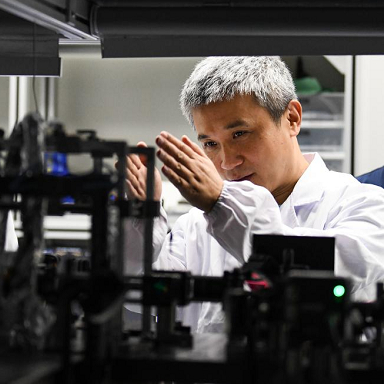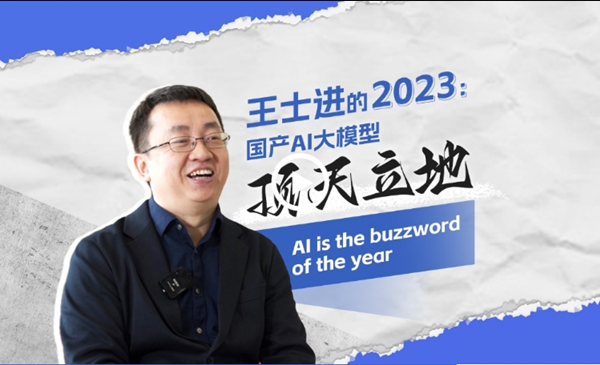Nobel laureate calls for a globally open science to 'save the world'
Facing some critical problems, the world needs science more than ever, and scientists need to work together globally, said Michael Levitt, the 2013 Nobel laureate in Chemistry.
The world urgently needs to reverse global warming, eliminate poverty and eliminate disease with international cooperation in sciences, said the scientist during a speech in Hefei, capital of Anhui province on Monday.
"I think we're able to do all of these things, but we need to work together globally," he said during a speech at iFlyTek's 1024 Global Developer Festival, a three-day event that kicked off on Sunday. IFlyTek is a leading developer of artificial intelligence, or AI, based in Hefei.
"As a scientist, I've always benefited from globally open science, and I think we need to continue for this to save the world," said Levitt, a biologist from Stanford University who has worked with scientists from around the world.
"I have interacted with dozens of Nobel laureates, Turing Award winners and Fields Medal winners, who have done really really great discoveries," said Levitt.
"Stanford's former president John Hennessy said in a book on leadership that there is one really really important characteristic of a leader. You have to be able to learn. But if you are a leader, people won't tell you what you want to hear, and then you stop learning," said Levitt, adding that people should always be open to learning.
Together with Arieh Warshel and Martin Karplus, Levitt got the Nobel Prize in Chemistry in 2013 for using computers to simulate biological molecules.
The theme of his speech on Monday was, "The secret of life, three intelligences, protein folding, and AI".
He thinks that people talk much about human intelligence and machine intelligence, but often forgot that the intelligence of biology is the foundation of the other two.
"Machine learning depends on all the science that's gone before. They need to rely on the work of thousands of scientists who worked out what were the structures, who discovered what nature was telling us," he said.
He has noticed that AI developers have been applying biology principles to solve some tough problems.






